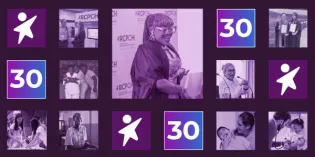Update - 23 November 2021
Over the last year there have been three court rulings about consent to the use of hormone blockers:
- In December 2020, three judges in the High Court ruled that it is doubtful that children under the age of 16 years are able to consent to treatment with hormone blockers (download ruling).
- In March 2021, the Family Division of the High Court ruled that parental consent may form a legal basis to prescribe hormone blockers to children under-16 and suggested it may be appropriate to consider additional safeguards in the clinical decision-making proces (see ruling).
- In September 2021, the December 2020 ruling was overturned by the Court of Appeal (see judgement).
The most recent ruling confirms that children under the age of 16 may, depending on their presentation, be assessed as legally competent to give informed consent – without the need to obtain a best interest order from the court.
For those aged 16 and 17 the courts have maintained a position that they are presumed to be able to give legally effective consent to treatment for hormone blockers or cross-sex hormones.
Original news story - 8 December 2020
The ruling (part of which is quoted below) specifically related to the consent of children and young people (up to 18 years of age) when prescribed puberty suppressing drugs as part of the treatment of gender dysphoria.
It found that young people under 16 may only consent to these particular drugs if competent to understand the nature of the treatment and said, "There will be enormous difficulties in a child under 16 understanding and weighing up this information and deciding whether to consent to the use of puberty blocking medication."
The judgement said it was "doubtful that a child aged 14 or 15 could understand and weigh the long-term risks and consequences" of this treatment. It further ruled that it was "highly unlikely that a child aged 13 or under would be competent to give consent to the administration of puberty blockers."
For young persons aged 16 and over the judges ruled that, although there is a legal presumption that they have the ability to consent to medical treatment, in these specific circumstances "given the longterm consequences" of taking puberty blockers, and given that the treatment is as yet "innovative and experimental", they recognised that clinicians "may well regard these as cases where the authorisation of the court should be sought prior to commencing the clinical treatment."
The ruling implies that before puberty blocking (as part of gender dysphoria treatment) for any child under 16 can take place, clinicians caring for the child would need to very carefully consider an assessment of the young person’s best interest and seek court authorisation.
The RCPCH has reviewed this court ruling carefully and considered the potential implications for all children and young people, both those with and without gender dysphoria.
We consider that the ruling should not have implications for the general ethical or legal framework for children beyond these specific circumstances. It remains that the best interests of the child or young person are of paramount importance.
The ruling reiterates existing law and good medical practice. Young people’s wishes and views about treatment should be sought. Most young people age 16 or 17 will be able to consent to medical treatment. Some young people under 16 can also consent to their medical treatment. However, competence to consent to a treatment is specific to the nature of that treatment.
A young person might have competence to consent to one form of treatment but not to another. Where the treatment is complex, where there is uncertainty about the outcome or where there are potentially serious implications of receiving or not receiving the treatment, a higher threshold is required.
This judgement has very significant implications for young people with gender dysphoria. There are a number of young people who may currently be receiving puberty suppression, whose treatment may now be put on hold or curtailed. There are also many children and young people waiting for assessment who now have no clear pathway.
Dr Mike Linney, the RCPCH Registrar, said:
The need for adequate counselling and support for many of these children and young people will put huge pressure on a system that is already woefully under-resourced and with long waiting lists.
The RCPCH therefore calls for urgent attention to the availability of dedicated psychological support and holistic care for all children with gender dysphoria We also call for rapid service planning for all children, especially those under 16, who would have been referred to the GIDs service but who may now find the service is unable to accept their referral.
The RCPCH is also seeking urgent clarification of the process and evidential requirements for court authorisation so that, where paediatricians believe that it would be in a child or young person’s best interests to receive puberty suppression, there is a clear, efficient and accessible process for applying to the court for a decision and that delays to court proceedings are minimised.
An independent review1 into gender identity services for children and young people is in progress and we hope that out of this comes a holistic model to best manage and support children and young people questioning their gender identity for all ages.
- 1NHSE has established an independent expert group chaired by Dr Hilary Cass to support a review of puberty suppressants and cross-sex hormones and whether changes are required to existing clinical policies that underpin the use of these on the NHS. See https://www.england.nhs.uk/2020/01/update-on-gender-identity-developmen…







